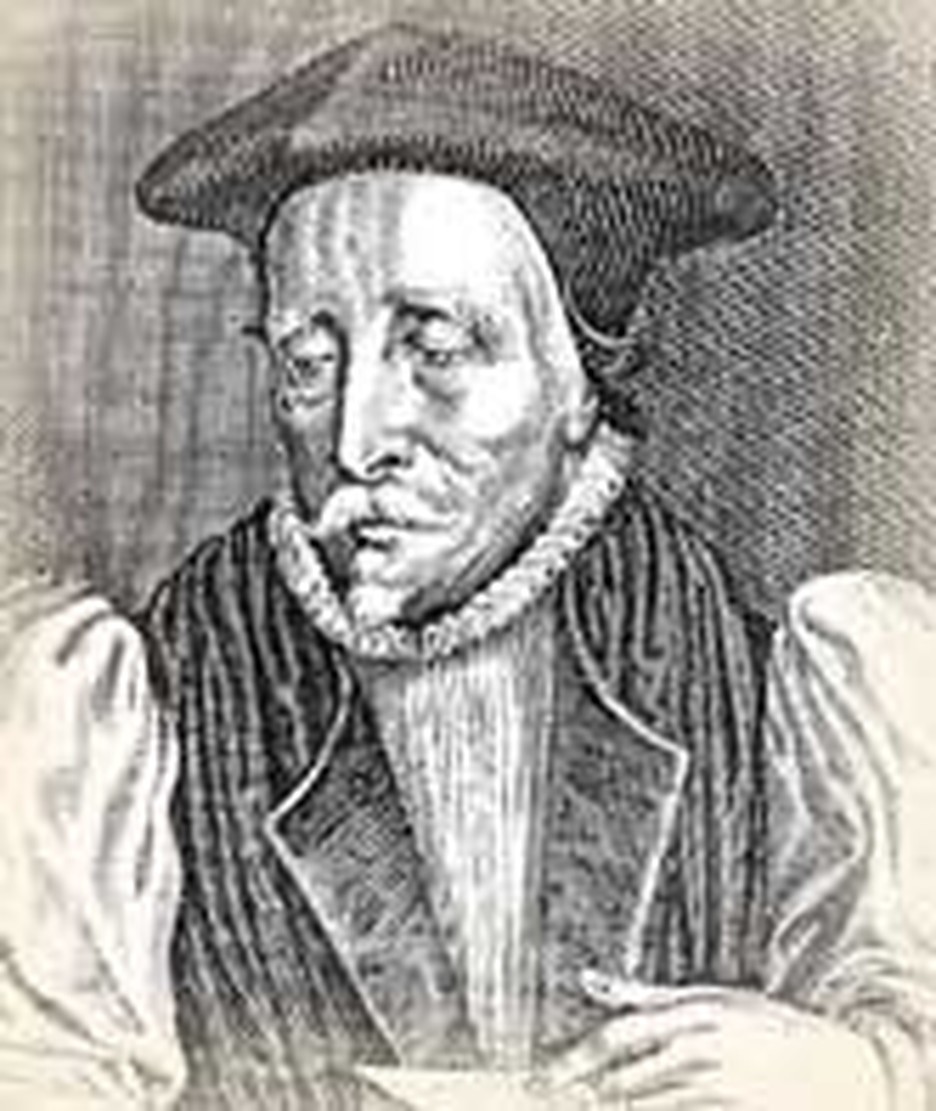
Lancelot Andrewes considered prayer so important that he even wrote a prayer to pray before beginning his personal prayer. He wanted to be in the right frame of mind with the right spirit when on his knees before God. "...pour your Holy Spirit into me, which may adopt me into the number of your chosen ones; that it may teach me how I ought to pray, according to your holy will; that it may subdue all troublesome and wandering thoughts in me, while I offer up my prayers and praises to you. Don't let me serve you with my lips while having a heart that is far from you; but create a right spirit in me..."
This prayer warrior was born in London in 1555 at the height of Mary Tudor's persecution of Protestants. As a young man at college, he had the resolution to refuse to play any kind of games, which he considered a distraction from his true purpose. Under Queen Elizabeth I, who restored the Protestant faith in England, Lancelot became a churchman. But he was "high church," meaning he favored Roman Catholic ways of worship.
Lancelot was a brilliant scholar, master of fifteen languages. Queen Elizabeth made him one of her chaplains. King James I also recognized Lancelot's worth and made him a bishop. He employed Lancelot's talents in political matters, too. After the gunpowder plot of 1605, in which Catholics tried to blow up the largely Protestant Parliament, King James demanded an oath of allegiance. The Roman Church censured any Catholic who took this oath. James, quite a scholar, wrote a defense. Cardinal Bellarmine, under a pen name, issued a harsh reply. James delegated Lancelot to answer Bellarmine, which he did capably.
In 1604, Puritan leaders asked King James to meet with them to discuss their grievances. The king agreed. The result was the Hampton Court Conference. Lancelot was there. When the king agreed to allow a new translation of the Bible, it was only natural that Lancelot, with his great knowledge of languages, should be one of the translators. In fact, he did most of the work on the five books of Moses and the historical books from Joshua through 2 Chronicles.
Considering how well-known Lancelot was, it is a curious fact that we don't have an exact record of his death. He died on or around this day, September 26, 1626. While he was alive, he had published a collection of nineteen of his prayer sermons. He considered prayer one of the most crucial tasks of a priest and thought public prayer was of the utmost importance. It should be modeled on the Lord's Prayer. Lancelot explained what each section of that famous prayer meant.
For example, Deliver us from evil: "We pray that God will take from us all those evils, which the devil desires us to have to endanger our souls. If we are to be delivered from the power of Satan we must possess the freedom of Christ who is Wisdom and Power and who will free us from evil. However we must not confuse our praying to be delivered from evil and of our bearing the cross in this life to Calvary, especially when we suffer innocently. We can never live the Christian life without the cross."
After Lancelot's death, even more of his prayers came to light. His private notebook on prayer was published. This book is considered a spiritual classic. He prayed for all of the nations of the world and for everyone who had helped him in the past. He praised God for his creation and asked for forgiveness wherever he had abused what God made. He prayed for the church and its unity. Lancelot took prayer seriously and that is what he is chiefly remembered for today.
Bibliography:
- Andrewes, Lancelot. The Private Devotions of Lancelot Andrewes; edited and with an introduction by Thomas S. Kepler. Cleveland: World pub., 1956.
- "Andrewes, Lancelot." The Oxford Dictionary of the Christian Church Oxford, 1997.
- Hude, A. G. George Herbert and His Times. London: Methuen, 1906. Source of the portrait.
- Russell, Arthur T. Memoirs of the Life and Works of Lancelot Andrewes, Lord Bishop of Winchester. Cambridge : J. Palmer, 1860.
- Various internet articles.
Last updated June, 2007








